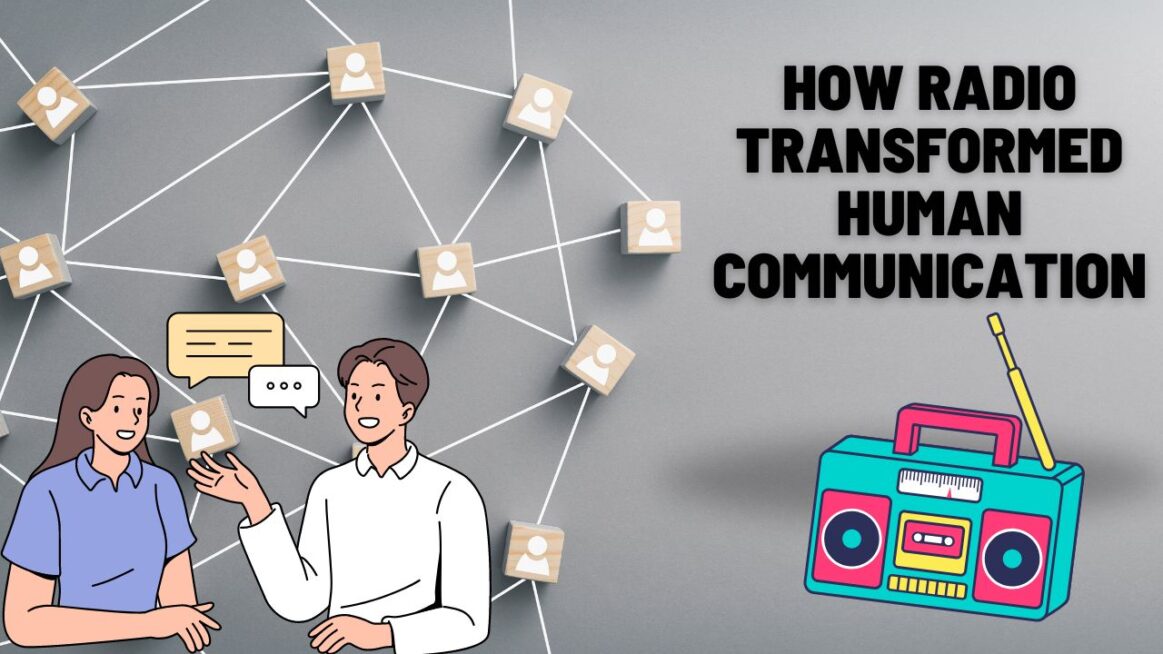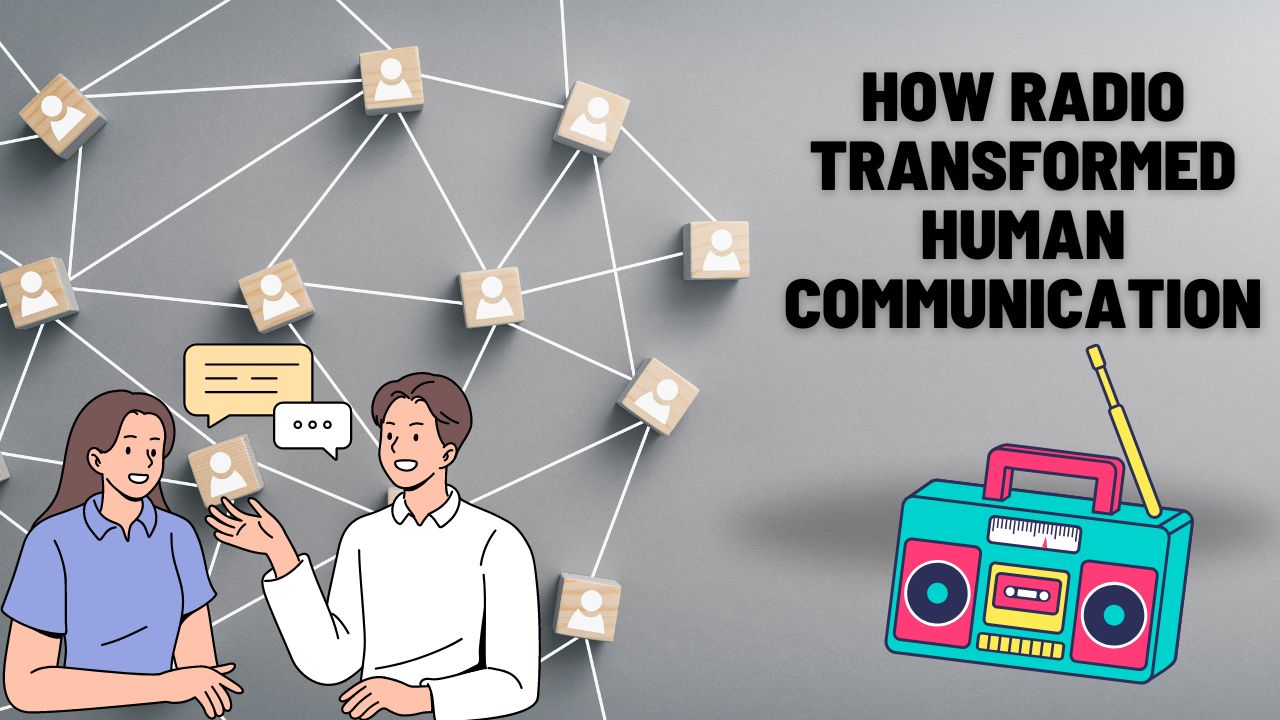Introduction
The invention of the radio marked a significant turning point in human communication and daily life. Before radios, people had limited ways to share information over long distances. The radio revolutionized how we connect with each other and access information. This article explores how the invention of the radio transformed human life, step by step.

The Early Days of Radio
- Discovery of Radio Waves: The journey to the radio began with the discovery of radio waves by physicist Heinrich Hertz in the late 19th century. Hertz demonstrated that electromagnetic waves could travel through space. This discovery was crucial because it proved that wireless communication was possible. You can learn more about Hertz’s experiments and their significance here.
- Development of Radio Technology: Following Hertz’s discovery, inventors like Guglielmo Marconi worked on practical applications of radio waves. Marconi is often credited with inventing the first successful wireless telegraphy system. By 1901, he successfully transmitted a signal across the Atlantic Ocean, proving that radio waves could cover vast distances. More information about Marconi’s achievements can be found here.
The Impact of Radio on Society
- Improved Communication: Radio made it possible to send and receive information without physical connections like wires. This breakthrough was revolutionary for both personal communication and emergency situations. People could now hear news, entertainment, and important updates instantly. Discover more about the impact of radio on communication here.
- Entertainment and Information: The introduction of radio broadcasting brought entertainment directly into people’s homes. Radio shows, music, and drama became popular, offering a new form of leisure and cultural enrichment. News broadcasts also allowed people to stay informed about world events in real time. Explore the history of radio entertainment here.
- Influence on Public Opinion: Radios became a powerful tool for shaping public opinion. Political leaders and activists used the radio to reach large audiences, influencing societal views and mobilizing support for various causes. The radio became a platform for speeches, debates, and announcements, impacting political and social landscapes. Read more about the role of radio in shaping public opinion here.
- Educational Benefits: Radio also played a role in education. Educational programs and broadcasts reached schools and individuals, providing learning opportunities beyond traditional classrooms. This access to information helped raise educational standards and foster lifelong learning. Find out more about educational radio programs here.
Conclusion
The invention of the radio transformed human life by making communication faster and more accessible. It changed how people received information, enjoyed entertainment, and engaged with the world. From its early days of experimental transmissions to becoming a staple of modern life, the radio has left a lasting impact on society. It paved the way for future advancements in communication technology, and its influence continues to be felt today.
References
- “Heinrich Hertz.” Encyclopaedia Britannica. Retrieved from Britannica.
- “Guglielmo Marconi.” History. Retrieved from History.
- “The Impact of Radio on Communication.” BBC History. Retrieved from BBC.
- “Radio and the Birth of Modern America.” PBS. Retrieved from PBS.
- “Radio in Education.” Education.com. Retrieved from Education.
- “Radio History.” C-SPAN. Retrieved from C-SPAN.

